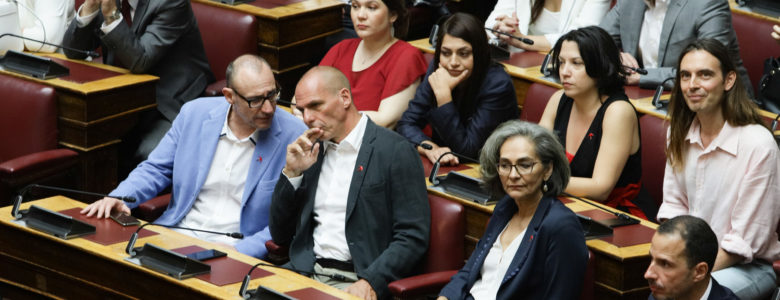
MeRA25: One year in Parliament
In less than a year, MeRA25’s parliamentary group have proven through their actions that they are “your voice in parliament.”
They have attended all parliamentary proceedings and articulated profound, substantive and creative opposition!
MeRA25’s parliamentary group has notably:
- Tabled more than 850 questions in the context of Parliamentary Control of the Government
- Submitted concrete proposals on a number of articles during the Amendment of the Constitution
- Tabled 20 amendments to legislative bills, including:
- Abolishing the prepayment of tax [businesses and freelance professionals must currently pay in advance 100% of next year’s estimated income tax]
- Rationalising the flat tax on property in favour of the weakest [one of the harshest austerity-inspired flat taxes, keeping in mind that home-ownership in Greece, at around 75%, is amongst the highest in the EU]
- Reducing VAT rates in Aegean islands [whose residents are de facto overburdened by high transport costs and limited access to state services due to geographic isolation],
- Proposing a subsidy for the elderly uninsured and protecting main residences and small businesses from foreclosures [a huge social issue, made worse by the government’s decision to allow off-shore predatory funds to purchase non-performing loans at large discounts, which in turn makes auctioning properties at prices well below the market profitable]
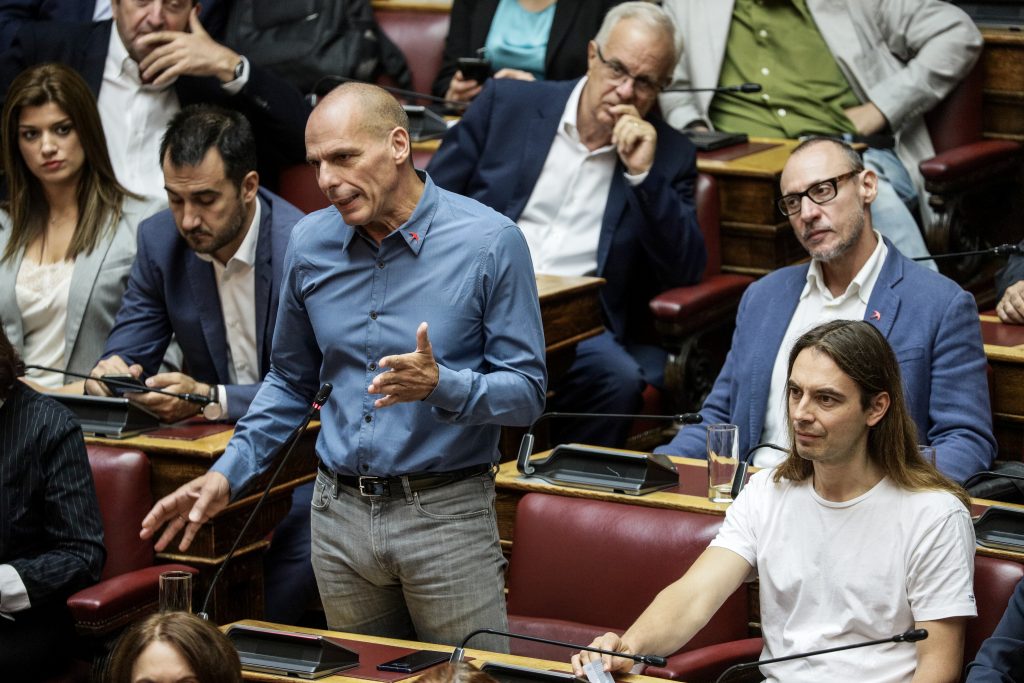
In addition, MeRA25 has submitted:
- A comprehensive electoral law proposal, aiming at a more proportional, practical, smart, full and democratic electoral system, while the other parties where haggling around electoral bonuses [Under majority representation over the past decade, the party gaining the most votes is awarded a bonus of up to 50 seats in parliament, out of a total of 300].
- A comprehensive legislative proposal on the right to vote of Diaspora Greeks, while both the government and the main opposition where deceiving them [Diaspora Greeks amount to as much as 50% of Greece’s population and established parties covet their votes]
- A legislative proposal “Protection of Citizens from the Fallout of the Intensifying Economic Crisis” for public consultation, ahead of its formal submission to the Greek Parliament.
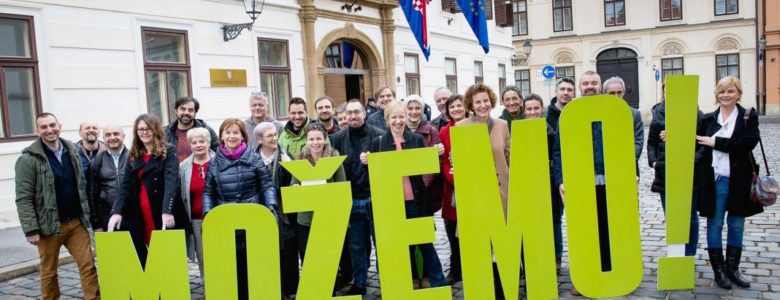
Croatia finally has a strong Left in Parliament: Možemo
Možemo! We have shown that it could be done! Despite the difficult circumstances, and opposing giants like HDZ and SDP, achieved an excellent result and secured seats in parliament.
Sunday’s elections in Croatia took place in the complex context of the COVID-19 pandemic and economic crisis. Despite such circumstances, the results are there and will create the social, political and economic climate of Croatia in the next four years.
These elections suggest that Croatia, unfortunately, continues to lean decisively to the right. Strong results by HDZ were accompanied by a solid result by Most, the traditional right-wing party (8 deputies), and especially those of the Domovinski pokret (Homeland Movement), the nationalist party of singer Miroslav Škoro (15 deputies).
On the “brighter” side of HDZ’s victory, the center-right party won a sufficient number of votes, thus avoiding an alliance with Miroslav Skoro’s nationalist and populist party, which, although still marginal, is becoming increasingly politically relevant.
However, Škoro’s still minor role will not be enough to deal with worrying democratic stalemates in the country, such as media freedom, corruption, treatment of migrants. Andrej Plenković is not a politician dulled by right-wing ideology, but rather a mere careerist. His right-center party is run by collecting votes instead of introducing radical changes that would ensure a brighter future for the Croatian people. But in Croatia, nationalism is clearly still a strong driving force, and the memory of the war remains an important part of the political campaigns of nationalists and populists.
However, the bright side of Croatian election results is the red-green platform made up of Možemo! (We can!), Nova ljevica (New Left), Radnička Fronta (Workers’ Front), ORaH (Održivi razvoj Hrvatske – Sustainable Development of Croatia), Zagreb je naš! (Zagreb is ours!) and Za Grad (For the City), which stands for an ecological and solidary Croatia. The Green Left Coalition, despite the fact that it started acting on the local political scene of Zagreb, managed to collect a number of names on its lists that are known to the wider Croatian public, from singer Mile Kekin to actor Vilim Matula.
Despite difficult circumstances, and opposed to giants such as HDZ and SDP, Možemo! achieved an excellent result and secured 7 seats in the Croatian parliament. These seats will be taken by Tomislav Tomašević, Sandra Benčić, Damir Bakić, Vilim Matula, Rada Borić, Katarina Peović and Bojan Glavašević. New representatives of the Možemo! platforms are well known to the public, especially to left-wing voters.
It also proved to be the biggest winner in Zagreb, illustrating the definite failure of longtime mayor Milan Bandic, whose party BM365 failed to cross the election threshold. This is the biggest defeat for Milan Bandic since he took control of the Croatian capital in 2000.
One thing is certain — a significant part of left-wing voters have placed all their hopes in the green-left coalition. This is especially the case regarding HDZ’s defeat over SDP, while the SDP debacle will strongly affect the development of the Croatian political scene. A good part of left-wing voters, obviously disappointed with Bernardic’s SDP, turned to the Možemo! coalition, indicating a growing awareness in citizens about the need for a red-green leftist policy.
Voters who have given Možemo! their vote and confidence are committed to radical change in the political and economic system.
After 30 years of liberal transition in Croatia, voters believe the time has come to transform the social, political and economic model.
If we want this success to become a triumph of (true) leftist politics, the seven new representatives will have to justify the trust of their voters. They already have shown commitment and effort throughout many years. It would be hard to imagine that any of the seven MPs of the Možemo! coalition could subdue the ruling majority or cede their votes in exchange for privileges, which is definitely not the case with SDP’s Restart coalition.
With the cooperation and support of all European progressive parties and platforms, MOŽEMO! is undoubtedly a key actor in building a just and solidary Croatia and Europe.
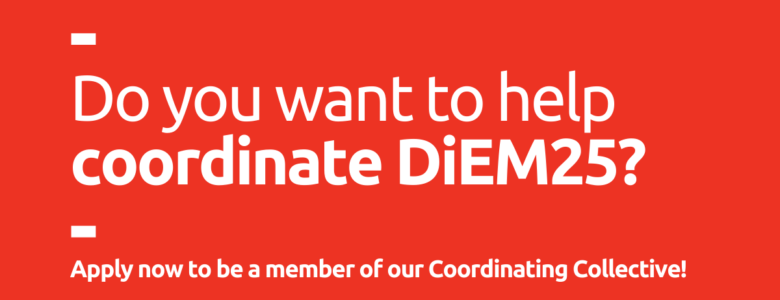
Would you like to help coordinate our movement? Candidacies are open!
Six posts in DiEM25’s Coordinating Collective are up for elections and you can play a role coordinating our movement across Europe.
The time has come. We are again renewing half of our Coordinating Collective (CC), and all DiEM25 members are welcome to be candidates.
CC members coordinate our movement to ensure it remains a relevant and powerful force in the fight for people-power in Europe. Their responsibilities range from managing volunteer teams, planning and maintaining processes and deadlines, and developing and running strategies, policy-formation and political campaigns, to acting as political representatives of our common project.
DiEM25 is a feminist movement promoting gender balance in all its bodies, including the CC. At least 50% of CC members will be women. We also encourage people from all parts of Europe and beyond (given that almost all meetings are virtual), and from all walks of life to apply.
Do you have the time, experience and skill-set to coordinate our movement? Check out the requirements and the timeline here. You can submit your candidacy on the same page.
Timeline for the 2020 CC elections.
July 7: Call for CC candidacies
July 18: Page goes up, candidates can start to collect signatures, objections to candidacies can be filed, more people can still submit their candidacies
Aug 6: Final date to submit your candidacy
Aug 12: Final date to collect signatures (every candidate needs 20 signatures)
Aug 13: Voting starts
Aug 28: Last day to vote
Aug 29: Results are announced
DiEM25 members considering running for a CC position should take the following under consideration.
What are the requirements?
- The language in which CC meets, discusses and deliberates is English. Full fluency in English is therefore vital.
- CC members work hard and, due to DiEM25’s present financial situation, for no monetary reward. Candidates therefore need to be prepared to dedicate a minimum of four hours per day to DiEM25-related work, mainly hands-on organising.
- CC members, like all DiEMers, must identify with the manifesto and be ready to uphold our Organising Principles.
- CC members must be very familiar with DiEM25’s policies and stances, in order to be able to represent them in the media, in talks with partners or at conferences.
- CC members participate in at least one teleconference per week and must often travel to events on behalf of DiEM25 or to physical CC meetings. Travel is reimbursed.
- If you are an active politician with an elected mandate, you cannot be a candidate or member of the CC unless the VC gives you an exemption. If you are a member of a political party, you must declare it in your application. Also if you become a member of a party while in the CC, you must inform the CC immediately.
How do I submit my candidacy?
You can submit your candidacies until August 6th. In order to qualify as a candidate, you must have been a member since at least June 1, 2020. Any members who joined after that date must wait for another round of elections.
DiEM25 particularly welcomes candidacies by people who have strong planning, organising and fundraising skills, people who live in countries not currently represented on the CC, or women and minorities.
Prospective candidates must provide the following as part of their application: a short statement, a description of their work for DiEM25, a description of their experience with hands-on coordinating work outside of DiEM25, a CV, a video message in English to fellow DiEM25 voters, and a scanned copy of an official ID or passport.
For more information on how to submit your candidacy, click here.
Interview with the CC.
After submitting your candidacy, the electoral commission will be in touch in order to do an interview, which is also an opportunity for you to ask questions about the Coordinating Collective.
Collecting signatures.
Every candidate will have to collect at least 20 signatures from other members in order to appear on the ballot. In order to have DiEM25 co-workers and DiEM25 friends give their signature for you, you will need to direct them to go to the Candidates page in the Members Area between July 18 and August 12. There, they must click on your profile and then click “endorse”. New members with less than 3 months’ membership cannot endorse anyone.
Submit your candidacy.
We hope to see your application!
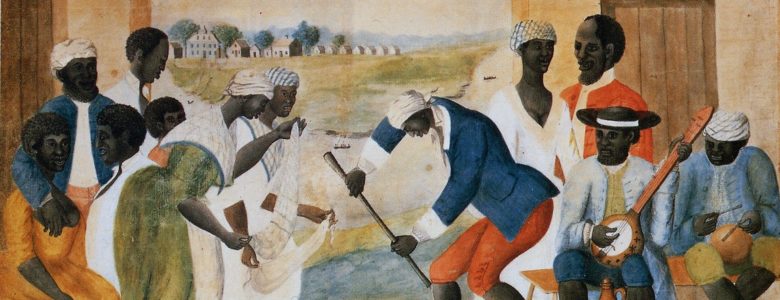
‘Progress’ cannot come at the cost of oppression and exploitation elsewhere
The Capitalist paradigm asks us to blindly consume and produce. It has created an environment of vicious competition that requires continuous growth and sustained profit generation at an incremental speed. Exploitation is at the heart of this system by default.
As Marx noted, capitalism alienates human beings from their labour, nature, as well as from one another. This manifestation of alienation (the outcome of unfettered competition) and the individualistic nature of capitalism has pushed us to fight for survival. This has prompted the creation of national, ethnic, and racial identities to protect specific vested interests by maintaining established structures of power and profit making. Issam Nassar, a historian of photography, stated that,
“Nationalism, as much as it is based on collective imagination, still uses, selectively, historical facts to root itself in history and present itself as primordial and external at the same time. Nationalism is a product of socio-economic, political and intellectual conditions, grounded in particular movements of the past.”
A new class of ‘throwaway people’.
Our alienation from nature and the fake sense that with technology we are able to mould nature to satisfy our consumer mindset — sustaining a corrupted sense of progress — has generated a culture of exclusivity and oppression that has yielded insecurity and poverty. Scholar and activist Vandana Shiva pointed that out in one of DiEM’s TV episodes, explaining that this system is “creating a new class of throw away people, […], because there are 5 to 10 tech companies who think that the future by force will be robotic and digital based on artificial intelligence and we wouldn’t need people. Zuckerberg has said in his Harvard speech: most people will be useless.”
One of the most vicious forms of oppression and exploitation — slavery — is fueled by racism. Its latest manifestations are in Libya’s migrant ‘slave market’ in which “young men are auctioned off to farm workers.” We have reached the 21st century and apparently instilled human rights, but we have yet to properly eradicate racism and slavery from our planet.
Whether it is in the US, where police brutality has allowed for the persecution and killing of people of color, in Lebanon where domestic workers are exploited emotionally, sexually, and economically, or in Qatar, where workers building football stadiums to feed our “passion” for fairly played sports were being exploited through labour abuse by working for long hours — while we “enjoy” the so called work/life balance — before being left stranded and in debt. Palestinians are being treated as lab specimens on the hands of the Israeli Occupying forces (IOF) to test oppression techniques and weapons to be exported to the rest of the world to create global Green Zones. Last but not least, in Europe a recent episode happened in the midst of the pandemic: two French doctors openly discussed on national television the idea of using Africa as a ‘testing ground’ for vaccines.
The list goes on and on, but this is not a reason to give up and accept the established norms. On the contrary, this is the time to really get to the root of the problem and address it once and for all; Capitalism. Philosopher Cornel West recently stated:
“If you really want Black people to be free, and I do, Black people will never be free under a system of predatory Capitalism. We will never be free under a system with imperial tentacles.”
This means that to be truly free, and to achieve the higher goal of self-determination at the individual and collective level, one has to stand against Capitalism. West’s statement re-channels what many advocates of human rights and equality have also stated — that imperialism is at the root of Capitalism and its ideology, and continues to reproduce itself as today’s hybrid neocolonialism. For example, Murray Bookchin noted at the end of the seventies that the various types of exploitation are highly connected. He stated that the ecological crisis embodied by the exploitation of nature by humans has roots in the institutions of human on human exploitation. Angela Davis also advocates for the expansion of feminist thinking to include the struggle against all types of exploitation and oppression, as an intersectional approach to power.
Addressing systematic exploitation must be a global effort.
We need to deal with exploitation in a systematic way by looking at the roots of the problem that are deeply entrenched in the institutions of capitalism, such as, (un)conscious individualism and racism. Every choice one makes — as small as buying a can of tuna — has an impact on the other side of the globe. We cannot have a just ‘globalised’ world without involving all of the planet’s communities in the fight for human rights and dignity. We must not drag 19th and 20th century concepts of self-determination, such as nationalism.
We must collectively imagine what kind of self-determination we want in the 21st century. In this regard, DiEM25 has co-started the Progressive International, which creates a space for progressives from all over the world to come together to address global issues such as global inequality through policy and grassroots activism. In the And the weak suffer what they must?, Yanis Varoufakis refers to interconnectedness while addressing European societies as follows:
“No European nation can be free as long as another’s democracy is violated.
No European nation can live in dignity as long as another is denied it.
No European nation can hope for prosperity if another is pushed into permanent insolvency and depression.”
No human being can live a life of dignity, prosperity, and peace as long as another human being is suffering from inequality, injustice, and exploitation.
A European New Deal can be the catalyst to give members of European societies the time and space to imagine a new world without worrying how to make ends meet. At present, our challenges are global, interconnected, and deeply entrenched in the Capitalist paradigm.
We have reached a time where traditional solutions do not work any more, whether on the economic, societal, or political levels. We have now reached a time where it seems a Kuhnian-like paradigm shift is inevitable. Where this shift would lead is affected by our collective decisions.
We need to transform the established norms and customs, to transcend all national, racial, and ethnic constructions inherited from previous generations by critically and openly revisiting the historical narratives and stereotypes of different communities that were fed to us. By doing so, there is the hope of constructing a just and sustainable world.
We acknowledge that these global challenges are not easy, but we can’t sit back and wait for a miracle, “we have to be the miracle.”
Mohammad Khair Nahhas is a member of the thematic DSC Peace and International Policy 1.
Image: Slaves dancing on a South Carolina plantation by John Rose. The Old Plantation, c. 1790.
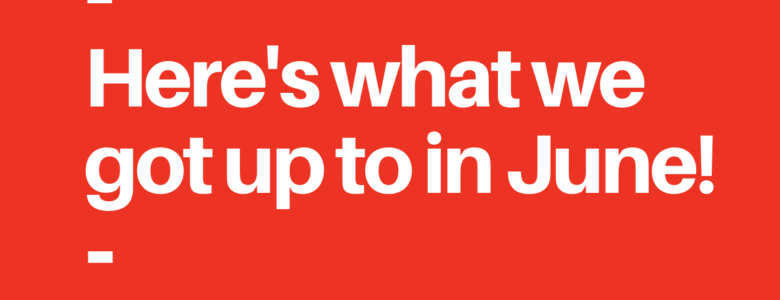
Last Month in DiEM25: June 2020
As DiEM25 prepares for the summer, we are reflecting on our achievements this June and preparing for what’s ahead.
External Actions
This month we:
Participated in several Progressive International (PI) events:
- Imagining a Palestinian Future
- Power and Precarity: How the IWGB builds leverage in the fight for worker rights
- Internationalism at Sea: Migrant Justice and Humanitarian Rescue
The Progressive International (PI) expanded its social media platforms into new languages such as French and Portuguese! Follow them on Twitter here.
Held A Vision For Europe 2020 Book Launch with Yanis Varoufakis, David Adler & Shoshana Zuboff!
Continued our Green New Deal for Europe articles series on why this COVID-19 crisis is a critical moment to address ecological breakdown.
DiEM25 France is working towards a European Rent Strike, preparing a set of EU-wide demands ‘Free low-income Europeans from rent burden’ during COVID-19.
DiEM25 France supported and joined the anti-austerity protest in Paris, on June 16.
The Luxembourg DSC started compiling testimonies of short-time work fraud.
The Dublin DSC released an open letter to IT staff during the Facebook walkouts on June 18.
DiEM25 supported the Green-Left Coalition in the Croatian national elections, which won 7 seats in the country’s parliament!
Continued building on the success of DiEMTV with Yanis Varoufakis’ series “Another Now”. We focused on discussing the pandemic’s effect on our socioeconomic system, and what post-capitalism could look like! Yanis has hosted the show with guests such as editors from OpenDemocracy, contemporary artist Anish Kapoor, and American economist Richard D Wolff! We also had “The Future of Freedom” with Lara Feigel and Lyndsey Stonebridge. Watch the episodes on our YouTube channel!
Internal Actions
This month we:
Launched the six All-Member Votes for the implementation of DiEM25 2.0! By doing so, we enhanced our participatory processes and strategies to boost the movement’s impact.
Built on our grassroots DIEMTV goes local! initiative — which is a members-led ‘television’ platform highlighting issues across Europe — by training our members to produce video content through a workshop!
Received the results of our first members’ survey to help us better understand the interests of the membership and improve our capacity for coordinated and impactful actions. These results are being analysed and will be made available soon.
Continued to hold transparent live-recorded CC meetings open to the public on YouTube.
First meeting about the implementation of the educational platform made a lot of progress. The first course will be a welcome package and a guide for new members. Soon DiEMers will have a new exciting way to share their knowledge in order to expand DiEM25!
Next Month in DiEM25: July!
DiEM25 is back! A decision by the CC is pending on whether we will embark on a major long-term project to engage with local communities across Europe and jointly develop a plan for the kind of Europe we want to build, together. Throughout July and August, DiEMers will be asked to submit the questions they believe anyone should be able to answer in order to be politically relevant in their city, region and country. They will be the foundation for the questionnaire we will use to go out as of September and inspire citizens to engage with our project! The CC will discuss this on Wednesday 08/07 at 18.00 CET, and if it goes ahead: keep an eye on your inbox for the next steps!
Our movement will engage in the implementation of the results of the Prague Process (member proposals for actions and campaign, and the CC vision) based on the results of AMVs.
Another season of DiEM25 TV! Stay tuned and subscribe to our YouTube channel.
If you wish to send a point to be included from your NC or DSC activities in the monthly updates please contact our Web Editor at [email protected]!
Do you want to be informed of DiEM25’s actions? Sign up here.
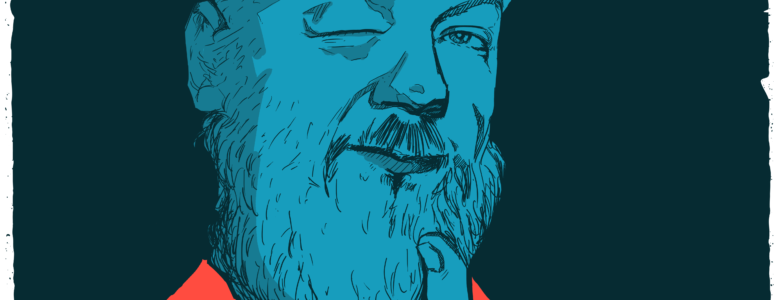
The real war against the press: Julian Assange as public enemy number one
10 years ago, a government case against WikiLeaks founder Julian Assange would have made global headlines.
Now, as Assange fights extradition to the United States from a courtroom in the United Kingdom, the same media organisations that worked with WikiLeaks to share stories of government misconduct remain silent about a case with an obvious negative impact on press freedom and democracy.
Find out what happened and how DiEM25 is committed to preventing this injustice against Assange, WikiLeaks, and the free press.
Slavoj Žižek, philosopher and DiEM25 Advisory Panel member, on Julian Assange.
How WikiLeaks came to be.
WikiLeaks began in 2006 out of a radical belief in transparency. The objective of the organisation was simple: create an online platform for whistleblowers to make secret documents publicly available.
Founder Julian Assange relied on prior experience in computer technology and privacy protection to build the organisation. This included partaking in the early developments of encryption technology, as well as providing ‘technical skills” to help authorities expose an underage sex ring in his native Australia.
This belief in encryption technology and exposing injustice made WikiLeaks standout to whistleblowers. They could now share classified documents and evade detection with WikiLeaks’ encrypted ‘dropbox’.
Working with the press.
WikiLeaks’ first big break came in April 2010 with the release of US Army files provided by intelligence officer Chelsea (then Bradley) Manning. Most striking from the release — hundreds of thousands of classified files from the US Army about the war in Iraq — was the “collateral murder” video of US soldiers fatally shooting 18 people, including two Reuters journalists.
WikiLeaks followed the Manning leaks with the Afghanistan War Logs (July 2010), the Iraq War Logs (October 2010), Cablegate (November 2010) and the Guantànamo files (April 2011).
The Cablegate Files marked the largest and most newsworthy of these releases. WikiLeaks worked with Western media organisations — including New York Times, Guardian, Der Spiegel, Le Monde, and El Pais — to release a quarter of a million US diplomatic cables. The information shared in these cables revealed US spying on the United Nations and other world leaders, tensions between the US and allies, and corruption in countries throughout the world documented by US diplomats.
The disclosures of 2010-2011 from WikiLeaks have been cited as a driving factor in the Arab Spring protests of 2011, ending “public business done in private”, and the beginning of what appeared as “the golden age of whistleblowing.”
On the run.
Political pressure quickly grew against WikiLeaks and Assange.
The US government and financial institutions went after WikiLeaks on a multitude of fronts: shutting down donations, “blocking access” to the WikiLeaks website, threatening prosecution, and asking allies to “open criminal cases” against the organization. Specifically, its founder and spokesperson: Julian Assange.
Confronted with mounting pressure on WikiLeaks, Assange fled to Sweden, where whistleblowers and journalists enjoy more legal protection.
However, Assange was soon the subject of controversy in the country: two women accused the WikiLeaks founder of molestation and rape. A preliminary investigation was opened by Swedish prosecutors after Assange reported for questioning about the allegations. The rape allegation was soon dismissed and the arrest warrant for Assange was dropped less than a day after it was issued.
In the meantime, Assange relocated to London after his request for a work and residency permit was denied by the Swedish government. Upon hearing of an Interpol warrant for his arrest after the preliminary investigation was reopened by Swedish prosecutors, Assange turned himself over to the UK police.
After initially receiving bail, a UK court soon issued his extradition to Sweden to answer further questions about the allegations.
Fearful of a sealed indictment in Washington that would lead to his extradition to the United States by the Swedish government, on June 19 2012 Assange skipped a bail hearing in the UK and took refuge in the Embassy of Ecuador in London.
The Embassy Years (2012 – 2019).
On August 16th 2012, Assange was granted political asylum by Ecuador’s president Rafael Correa because of “political persecution and prospect of an unfair trial” in the US.
Assange announced his asylum on the now famous balcony across from Harrods in London.
While in the embassy, Assange continued to publish WikiLeaks material, including the Saudi Cables and Stratfor Leaks.
The Saudi Cables exposed the Middle Eastern kingdom’s “checkbook diplomacy” to undermine Iran and their strong dislike for Israel. Meanwhile, the Stratfor Leaks explored how the US-based private intelligence company “monitored activists, made payments to the controversial Pakistani intelligence service, and engaged in insider trading.”
Though, most notable during this period was WikiLeaks’ involvement in securing asylum for whistleblower Edward Snowden.
In the meantime, a tug of war continued between Assange and Swedish prosecutors, (along with the US and the UK). The Assange legal team requested Swedish lawyers interview the WikiLeaks founder at the embassy in London or over video link. They declined until 2015, when lawyers from the Swedish government interviewed Assange at the Ecuadorian embassy.
The preliminary investigation was eventually dropped in 2019 after years of international pressure, including a UN panel describing Assange’s asylum as “arbitrary imprisonment” and, by UN representative Nils Melzer as “physiological torture”.
Changing winds: Trump and Lenín Moreno.
WikiLeaks and Assange came under a different kind of pressure during the 2016 US election.
WikiLeaks was embraced by then-candidate Donald Trump during the heat of the presidential campaign — infamously claiming he “loved” WikiLeaks — after the release of emails from Hillary Clinton’s campaign chair John Podesta showing “quid pro quo” foreign policy, financing by US allies of terror group “ISIS”, and working to elevate “pied piper candidates” like Donald Trump to be Clinton’s challenger.
While US intelligence claim the Podesta emails were funneled to WikiLeaks by Russia-linked hacker Guccifer 2.0, they did not find “any evident forgeries” in the content of the emails.
Arresting Julian.
Whatever admiration candidate Trump had for WikiLeaks was quickly lost after his entry to the White House.
Three months into the new administration, Trump’s newly appointed CIA director Mike Pompeo declared WikiLeaks a “hostile non-state” actor. The agency worked behind the scenes with Trump donor Sheldon Adelson to spy on meetings Assange had with his lawyers in the Ecuadorian embassy.
Meanwhile, Democrat senators in the US pressured Ecuador’s new president Lenín Moreno to “cut ties” with Assange because “WikiLeaks continues to undermine democracies globally.”
Soon enough, Assange was accused of violating terms of his asylum by publishing material on news events in Ecuador (as well as commenting on the Catalonia independence movement of 2017 and leaking CIA spycraft tools with the Vault 7 release).
Finally, Moreno allowed British police to enter the embassy and arrest Assange on April 11 2019, marking “the first time in history a government allowed a foreign law enforcement agency to enter its sovereign territory and arrest one of its citizens.”
Waging war against the press.
The original US case against Assange accuses the WikiLeaks founder of “conspiring” with Chelsea Manning (then Bradley) in 2010 to commit ‘intrusion’ of a government computer. This charge grew in May 2019 to 18 counts under the Espionage Act, which targets Assange as a publisher of government documents.
Before Trump, the Obama administration considered charging Assange with the Espionage Act — a World War I based law used by the administration more than all predecessors combined — but dropped their pursuit over First Amendment concerns. Specifically: if the government prosecuted WikiLeaks and Assange for revealing secrets, they would also have to prosecute “US news organisations and journalists” like the New York Times and Washington Post.
Such a revelation seems to add legal protection to Assange, despite the Trump administration’s “war on the press”; a war which the WikiLeaks founder is scarcely mentioned as a casualty. Yet it’s been revealed the judge overseeing the case, Vanessa Baraitser, has connections to corporations exposed by WikiLeaks.
Recent developments are even more troubling for Assange, with indictment charges expanding in “scope”, the reliance of US prosecutors on evidence from a deemed “psychopathic” FBI informant who infiltrated WikiLeaks, and speculation about the fairness of the trial after the WikiLeaks founder was “stripped naked and had legal documents taken from him.”
We at DiEM25 see Julian’s trial not only as a free press issue, but more importantly as a human rights concern.
To lock away a journalist for exposing secrets defines authoritarianism. Recent events have showcased the increasing deterioration of our democratic institutions. This year’s COVID-19 pandemic, and documented accounts of police brutality worldwide have shed light on the disregard of many ‘democratic’ governments for their own citizens’ lives.
We need to protect people like Julian Assange now more than ever. Whistleblowers ensure the functioning of our democracies by revealing what is being done by governments in the name of citizens.
As a movement committed to the belief that transparency makes strong democracies, we stand with and will fight for Julian, WikiLeaks, and the free press.
Sign DiEM25’s ‘Don’t Extradite Assange’ petition.
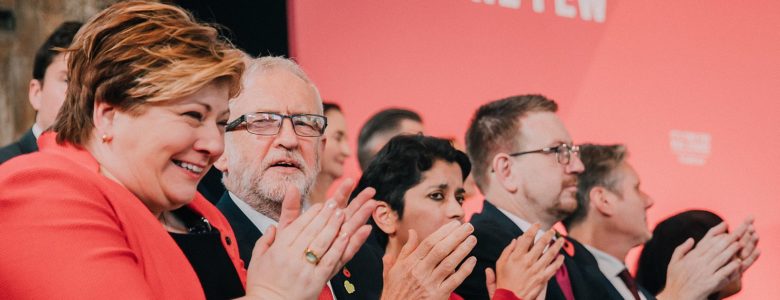
The mainstream media, not Corbyn, is the true cult endangering British politics
Corbyn’s election and re-election to leader of the Labour party has led to a revolution in opposition politics that has been felt across Britain — but a crackdown is now in full swing.
As a whole society wakes up to the vast misery engineered by austerity, and questions its commitment to the parasitic policy programme of neoliberalism, a mass propaganda programme is being deployed globally to defame Jeremy Corbyn and his supporters. Our nation has reached a crossroads.
In one direction lies a future promoting prosperity “for the many not the few”; in the other is the continued, ever powerful dominance of politics, the economy, society and the narratives that bind them together by an unaccountable complex of elites and transnational corporate lobbies, estranged from the lives of the common working population.
Corbynites, now demoted in Labour with the ascendancy of Keir Starmer, are activists who advocate the use of mass power (left populists) as a way of protecting workers, democratic and environmental rights against their wholesale retrenchment at the hands of an onslaught of a neoliberal and austerity oriented Brexit.
Jeremy Corbyn, the visionary behind the renaissance of original Labour values, has been a leading voice in the radical antiwar left movement for decades.
Now, in timely, urgent and important cries for radical reform and revolutionary policies, Corbyn unites a group of rebel thinkers on the frontline of the battle for Parliament, in the name of emancipating our collective tomorrows from oppressive and dystopian Tory rule.
This movement is not a “cult”. There is no time for that. This movement is a people’s agenda for societal and political change. The country is a clown car driven by Tories into dystopia. This development has not really been recognised within national political and media circles. It has been sidelined by distraction, diversion and misinformation unprecedented in its depth, complexity and scale.
The media, perhaps once a great tool for emancipation and liberation through collective enlightenment when used earnestly, has, through forty years of machinations of neoliberal New Public Management doctrine been transformed into the biggest, most dangerous totalitarian cult ever seen.
The media cult is a threat to British politics and global peace.
This metamorphosis of the media and journalistic culture into an elite cult has come about mostly silently, namely because those who know about it are insiders with no incentive to speak out, blinded by vested interests in maintaining the interconnected geopolitical and media status quo. Left to its own trajectory in a few years the global media will be the canteen tannoy of postmodern totalitarianism, indivisible from US power and world order. We may be there already.
While many apparatchiks of the mainstream media have considered what the ascendancy of the Corbyn collective means for society they are wrong. They are wrong because they have a warped, sold out perspective lacking the wealth of insight direct experience in the movement brings. They are wrong about the enemy because they are the enemy.
Illusions of the anti-Semitic Corbyn cult “danger”.
Over the past few years, Corbyn’s Labour has had conflicts with nearly every elitist party, broadcaster and state on Earth. It knows the neoliberal totalitarian media inside out because it has had to protect its people and reputation as a stalwart party of justice from it. It also knows it from a global perspective because it has been attacked by the propaganda assets of neoconservative lobbies. It knows it from the fullness of time because it has been fighting the phenomenon of Tory smears for years, and fought its spread again and again. The neoliberal totalitarian mainstream media is a useless parasite in the world, engorged on its profits in societies merging with a hell of poverty, austerity and destitution.
The MSM, not Corbynism, is the true cult imperilling British politics and global peace.
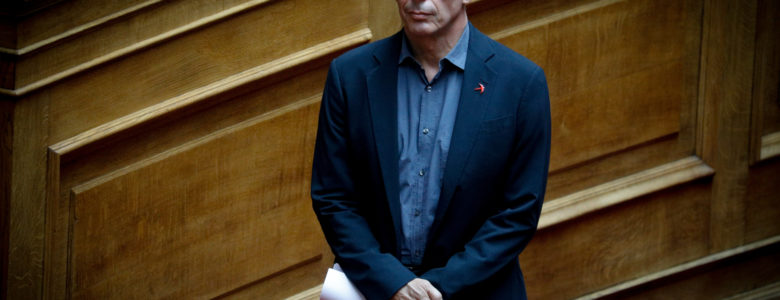
MeRA25’s legislative proposal to protect citizens and end austerity
After a full decade of harsh austerity, the pandemic will now certainly deepen the Greek recession, which will in turn bring new austerity measures, perpetuating a vicious circle with no end in sight.
In the meantime, the vast majority of citizens are left to fend for themselves, facing one or more of the following: Growing unemployment or underemployment, prepayment of next year’s income tax, foreclosures of small business properties and even main residences, and the loss of numerous seasonal jobs and support incomes due to the sharp drop in tourist arrivals.
In response, MeRA25 has tabled a 60-page proposed bill that is in part common-sense (lowering taxes and using state property as guarantees to generate investment flows), in part innovative (creating a parallel payments system to bypass the local banks and having senior public servants elected by a committee constituted by way of sortition), in part radical (the international and local oligarchies will have none of the above) and on the whole, absolutely necessary!
As things stand, the oligarchy without borders is holding Greek society hostage under a debt bondage scheme.
The lenders, in control of the Public Sector through the troika, excercise very restrictive fiscal and taxation policies, while international companies are pillaging publicly owned property through the “privatization program”. In the meantime, under the government plan “Heracles” to remove bad debts from banks’ balance sheets, offshore funds are acquiring red loans at huge discounts, allowing them to return handsome profits by auctioning mortgaged properties even well below their market value. At the same time, the government does not dare interfere with the banks, recapitalized using taxpayer money but still pursuing their vision as society’s parasites, despite the state owning a large percentage of their shares. On top of that, the local oligarchy continues to tax evade systematically.
This is the oligarchy without borders in action.
The state, under the control of the international oligarchy, turns a blind eye to the local oligarchy’s transgressions. In return, the latter ensure that the media under their control (that recently benefited from opaque government hand outs of EU funds for pandemic-related awareness campaigns) do not question the debt bondage regime. The government essentially acts as a middle man, ready to please both in return for support to stay in office.
According to MeRA25, the only way to protect citizens equitably is to regain national and popular sovereignty over tax authorities, the payments system, management of private debt, public property and the credit institutions that depend on public capital.
This way, the current pyramidic debt bondage architecture with the lenders at the helm can be transformed into a sovereign, institutionally decentralised structure under democratic control.
A translation of MeRA25’s press release follows:
MeRA25 on addressing the Economic Pandemic
Comprehensive Legislative Proposal for the Protection of Citizens
from the Fallout of the Intensifying Economic Crisis
Reclaiming Democratic Sovereignty over the institutional tools of the Greek Public Sector
Introduction: Prerequisites of citizens’ protection
Today, in the midst of a pandemic that threatens citizens with a second decade of debts, business closures, underemployment, agony, exploitation and loss of dignity, the Greek Public Sector is called upon to protect them.
In the last decade, the Public Sector lost control over important tools – from the ability to lower VAT and abolish the inane prepayment of tax, to managing its own property or protecting people’s main residence.
[prepayment of tax: In Greece businesses and professionals pay 100% of next year’s income tax in advance, based on the past year’s tax payment]
Irrespective of which party “governs”, the Public Sector must retrieve control over these tools in order to be able to protect its citizens from upcoming ills. This requires institutional reforms that combine:
- systemic haircuts of outstanding payments for the most vulnerable citizens and the lower middle class
- rationalization of existing institutions and creation of new ones
The comprehensive legislative proposal submitted to public consultation today by MeRA25 codifies the taxation policy and the far-reaching institutional changes that are necessary if the Public Sector is to protect citizens during the new, testing decade that is upon us.
Citizens facing the accelerating Debt-Recession crisis
As MeRA25 had warned, after two years of fictitious mini growth (2017-2018), the Greek economy returned in the second half of 2019 to a recessionary dynamic, which is its natural state of affairs (given the fourth austerity package 2018-2060).
[June 2018 Eurogroup decision: The Hellenic Republic (Greece) commits to achieving budget primary surpluses of 2.2% of GDP from 2023 until 2060]
The pandemic accelerated the existing recession, sinking national income by at least a further 15 percentage points in 2020 – while the family and personal incomes of the majority have been reduced much further. This recessionary resurgence leads, as a matter of mathematical certainty, to two outcomes:
- Deepening of the insolvency of both individuals (proliferation of non-performing loans) and the Public Sector (Debt to GDP ratio above 200%)
- New harsh austerity, equivalent to a 5th austerity package, made certain by committing to achieve a primary surplus (even a primary deficit less than 3% of GDP) in 2021
It is a foregone conclusion that the policies currently being followed, coupled with the simultaneous institutional inability of the Public Sector to react in favor of citizens will bring:
- new misery to the majority of citizens
- reinforcement of the feedback between insolvencies and recession
- further desertification, as our youth (especially the most educated) will continue to emigrate
MeRA25’s Legislative Proposal at a glance:
Today, a decade after Greece stopped being a sovereign country, the lenders, through the troika, continue to excercise full control over tax policy (eg. VAT, prepayments, corporation tax), tax authorities (PRIA), Greek statistical data (HSA), the fire sale of red loans to funds, which makes protecting main residences and the lower and middle class (HERACLES) impossible, and of course the troika Superfund, that forbids the Greek Public Sector to make use, for the benefit of Greek society, of both the public property (HRADF) and the banks’ shares that are in possesion of the state (HFSF).
[PRIA: Public Revenues Independent Authority, HSA: Hellenic Statistical Authority, HERACLES: The government’s plan to get red loans off banks’ balance sheets, by selling them at a huge discount to offshore predator funds, Superfund (Hellenic Corporation of Assets and Participations): a single umbrella fund established for the management and exploitation of all public property, whose subsidiaries include HRADF and HFSF, HRADF (Hellenic Republic Asset Development Fund): Manages the privatization of assets assigned to it through the “bailout” process, which include Companies (eg. public utilities, postal service), Infrastructure (eg. airports, ports, marinas, railways, highways, stadiums) and Real Estate (eg. prime public land, beaches, historical buildings), HFSF (Hellenic Financial Stability Fund): Recapitalizes banks by buying their shares.]
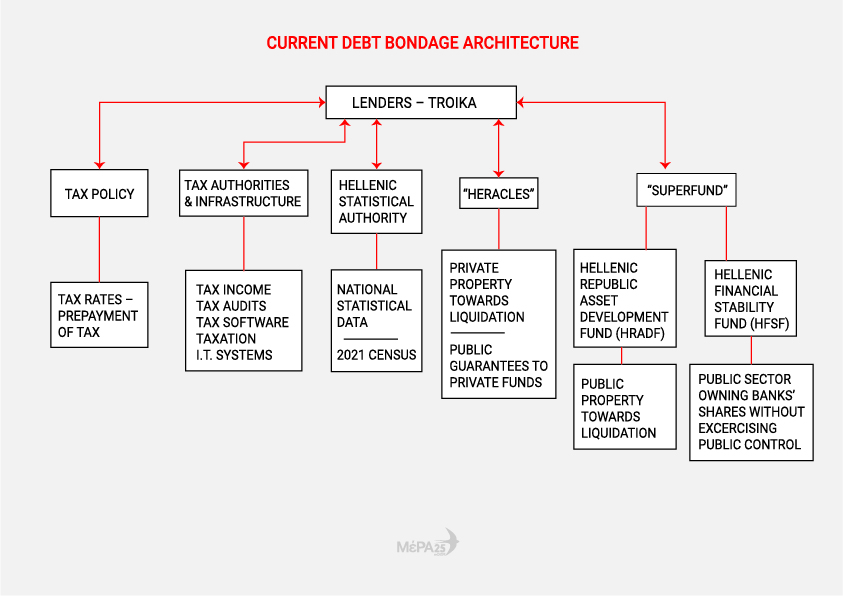
Legislating MeRA25’s proposed bill will overturn the recessionary dynamic of tax policy and, equally important, will replace the institutional architecture which is subservient to the troika, by reclaiming or creating institutions that protect citizens from the deteriorating debt-recession crisis.
- Abolition of all tax prepayments for annual incomes below 100 thousand euros (natural persons), as well as for businesses employing less than 300 people – Haircuts on outstanding payments owed by businesses and natural persons that where hit directly by the pandemic – Maximum VAT rate of 15% (18% for cash transactions) – Corporate tax rate of 15% for small companies, 20% for medium sized and 29% for large ones.
- The troika-controlled PRIA is abolished, with tax software and necessary IT systems transfered to a new General Secretariat for Information Systems & Tax Software.
- Establishment of a new, autonomous General Secretariat for Public Revenue, whose General Secretary will be selected by neither the government nor the lenders. Instead, they will be elected by a Social Committe for Selection of Senior Personnel, 1/3 of which is comprised of parliamentarians, 1/3 by judges selected by sortition and 1/3 by tax professionals – accountants selected by sortition.
- “Heracles” is abolished and replaced by “Odysseus”, a new regime for managing red loans with a new Public Company for Management of Private Debts at its center – see also previous Legislative Proposal by MeRA25.
- The “Superfund” is abolished and replaced by the company “Athena – National Development Company for Public Property and Fiscal Transactions”, comprising of
- the National Bank Holding Company, that will replace the defunct HFSF
- the New Hellenic Development Bank, that will result from the merger of HRADF with the existing development bank, so that the public property that is now being sold off by the HRADF is utilised instead (not sold) as a guarantee to induce investment flows in the private and public sectors.
- New System for Fiscal Transactions between Individuals and Public Sector, offering degrees of fiscal freedom to the Public Sector, while at the same time guaranteeing tax exemptions for citizens, as well as free of charge transactions with the Public Sector and between individuals.
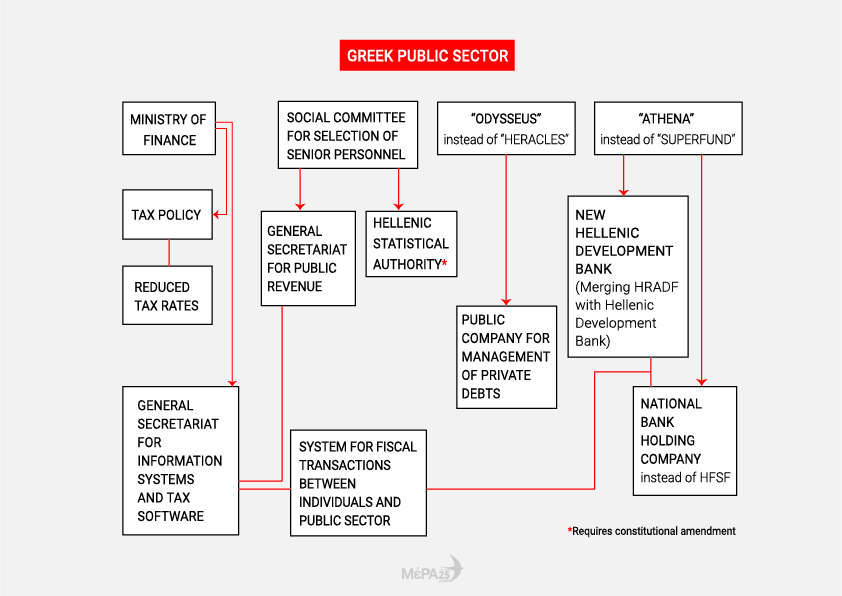

Due diligence, a step towards supply chain justice in fashion?
Fashion retail is one the most globalised industries in the world.
Any given garment has probably seen three or four different countries before arriving in your wardrobe — and will see even more once it is disposed of. Businesses who rely on global supply chains have naturally suffered acutely from the COVID-19 lockdowns, taking blows as it spread from East to West; from sourcing countries to the final markets.
Fashion is a labour intensive industry — that to this day plays on low wages — which means that the socioeconomic consequences in sourcing countries — such as mass unemployment — due to the lack of orders and unpaid cancellations by some brands, are tremendous.
Garment workers in the “Global South” are the most affected by the economic consequences of this crisis.
With shuttered stores, fashion brands have seen their income decrease dramatically. In Europe, home of the core of the luxury industry (LVMH, Kering) as well as the world’s two largest retailers (Inditex and H&M), governments are attempting to mitigate the crisis by propping up companies and giving furloughed workers payouts. The importance of the Fashion industry in Europe goes beyond these big multinationals; according to the European Commision the sector employs 1,7 million people, generating a turnover of EUR 166 billion.
The weakest links of the supply chain are located in countries where governments can ill afford safety nets or subsidies. A number of brands have cancelled orders that had already been placed. Just hear the Bangladesh Garment and Manufacturing Association (BGMA), desperately appealing to brands to pay for their orders. This, combined with a lack of demand of global markets, have vast consequences on garment workers. In Myanmar, workers have been striking in an effort to halt layoffs and demand unpaid wages. These mass layoffs appear to be targeting union members in particular.
A lack of effective legislation on supply chains benefits those who have — and apply — the weakest ethical standards.
Just before the COVID-19 crisis unfolded, the European Commission unveiled a new EU legislation on mandatory human rights and environmental due diligence for companies, to be materialised in the first quarter of 2021. This European law aims at setting the responsibilities and accountabilities of companies over their multinational supply chains — broadening the scope of the national bills. The law aims to hold companies accountable for their social environmental impact outside of the EU. It could be a critical tool to ensure the same rules will apply in terms of supply chain corporate responsibility to companies operating in the Union.
The framework will be part of the — already under scrutiny — European Green Deal and will seek to implement a higher bar in terms of human rights and environmental sustainability compliance in companies. How successful it will be remains to be seen.
Due diligence law is necessary to put pressure on companies to comply with ethical and environmental standards.
Many companies have already been seeing value in more sustainable ways of doing business: it reduces risks in the supply chain and boosts consumer engagement back home. Moreover, in a post-pandemic world, this may also be met with a public that increasingly disapproves of consumerism, and cuts spending on non-essential goods.
Additionally, we must remember that if some garments are so inexpensive, it is because externalities such as social inequality and environmental degradation are not considered in the final cost of the garment. The new EU due diligence regulation must strive to bring these into the equation and become a tool that will not only help to protect the environment, but also end environmental and labour costs dumping by less stringent jurisdictions.
But even more importantly, this set of rules — focused on due diligence requirements on businesses to identify, prevent, mitigate and account for abuses of human rights and the environment in supply chains, would incentivise companies to harness the momentum of supply chain re-localisation; which would also help to increase the quality of the products and the resilience of the sourcing model. Combined with other legislation — e.g. on circularity — the application of this set of rules, could incentivise other, more sustainable business models.
In that regard, the Green New Deal for Europe (GNDE) proposed by DiEM25 advocates for the implementation of an oversight body, the Environmental Justice commission (EJC). The EJC, which would take a holistic approach to “monitor the progress of the green transition, investigate questionable practices, and advise EU authorities on how to redress Europe’s role in environmental injustice around the world”, could be an essential body to ensure the correct application of this legislation.
Europe has traditionally taken the lead on many regulatory aspects, be it the environment or privacy laws. We must not compromise and take this new opportunity to lead once again and become a force of good in the global trade arena.